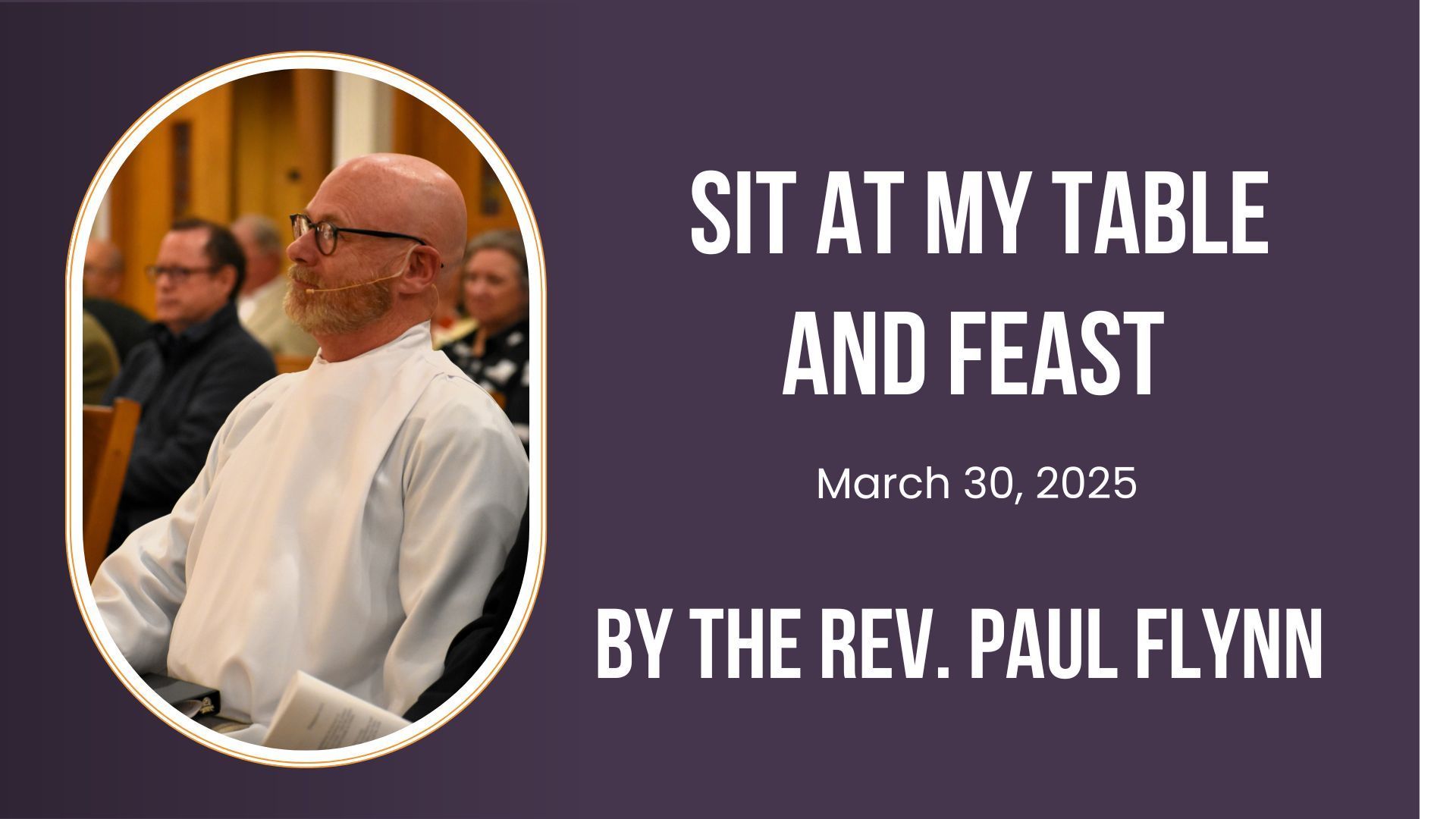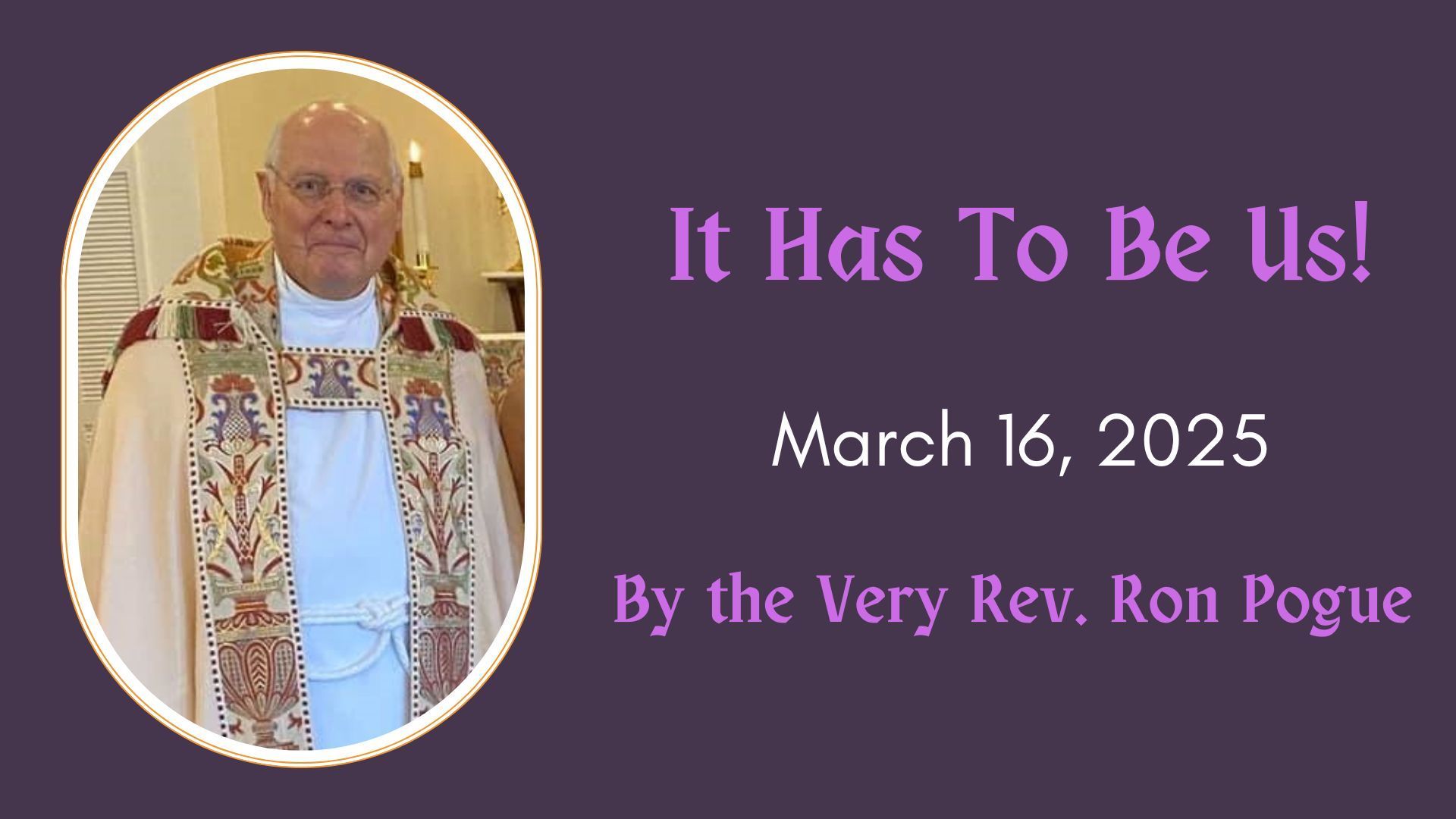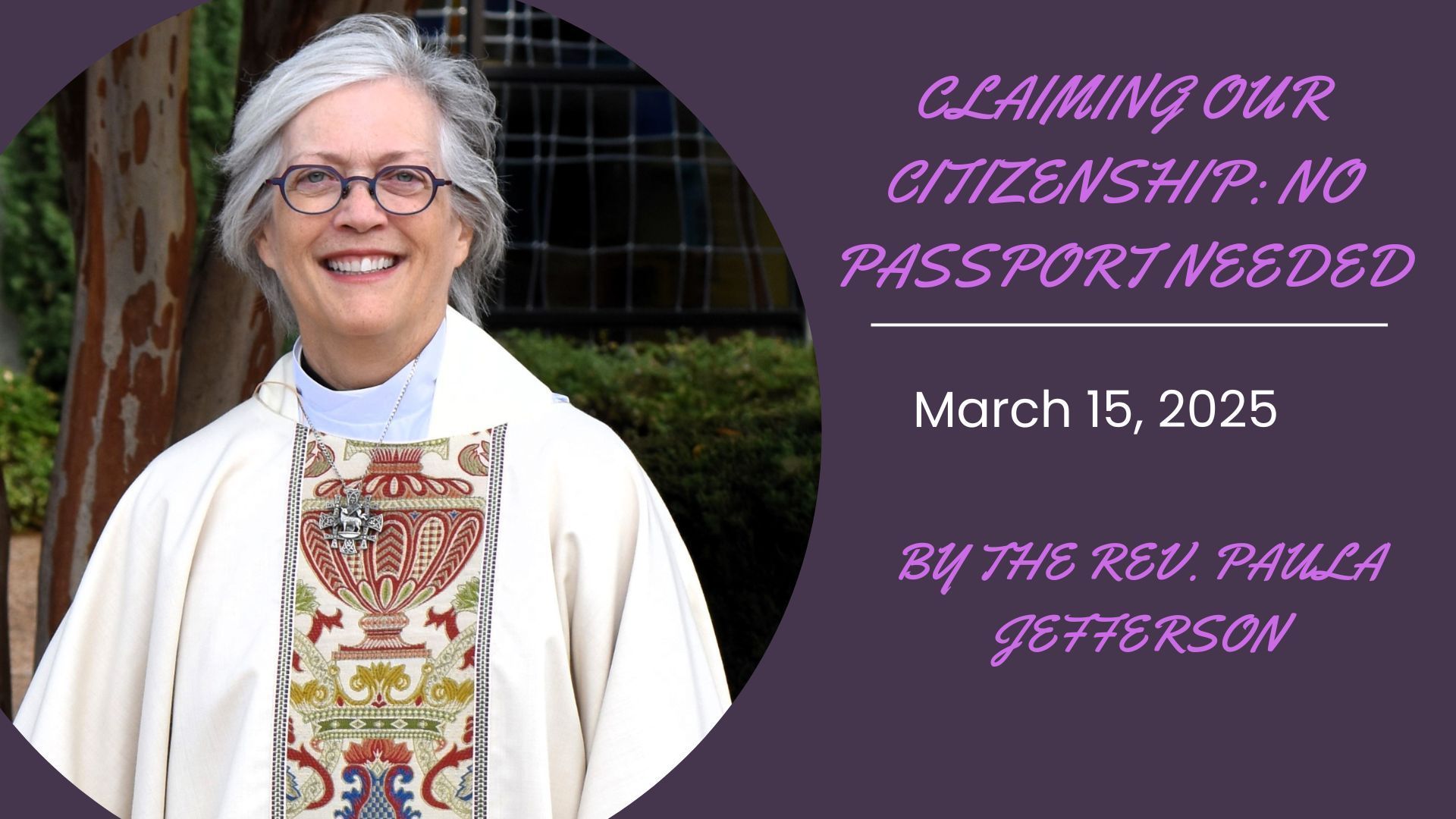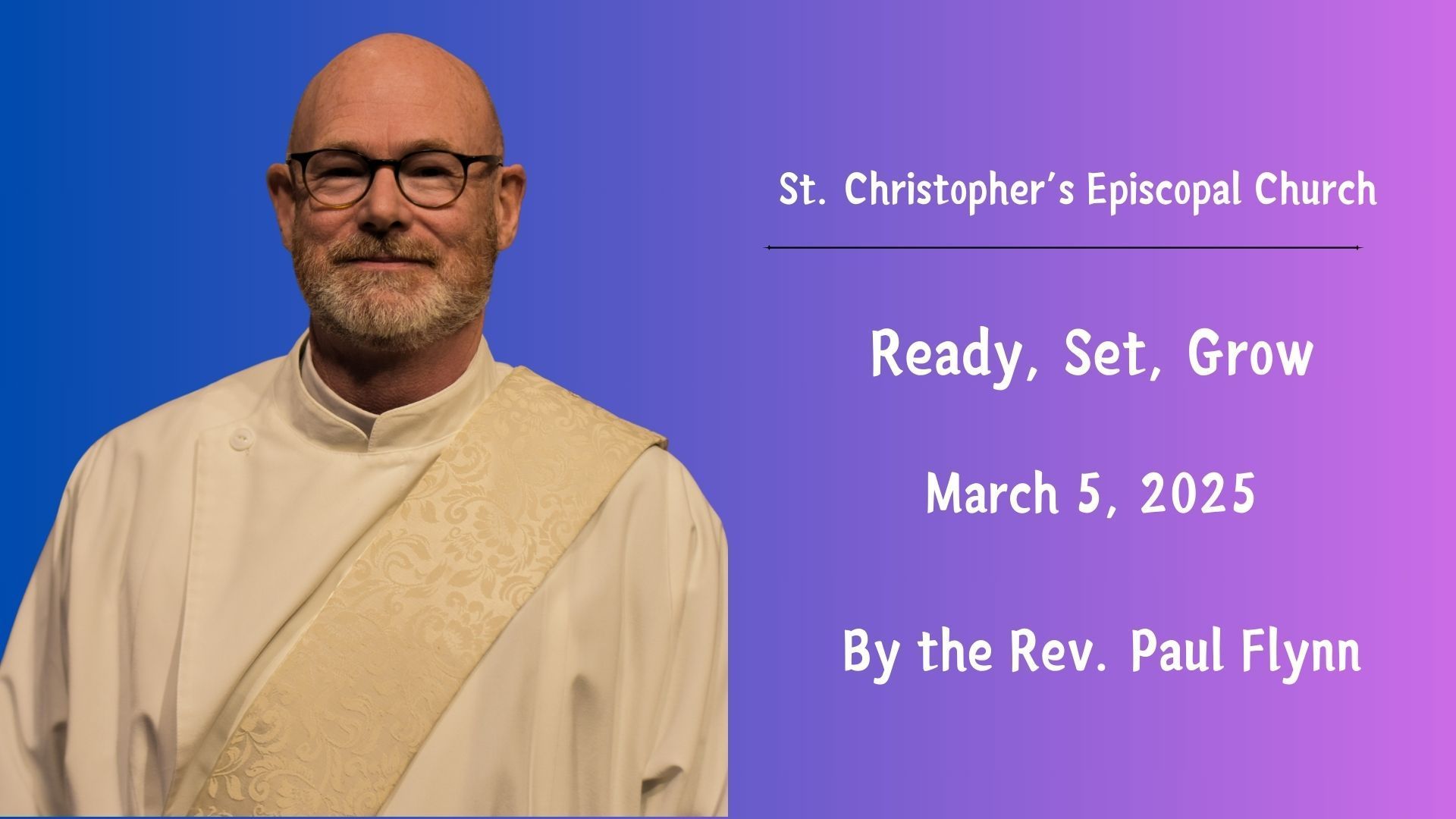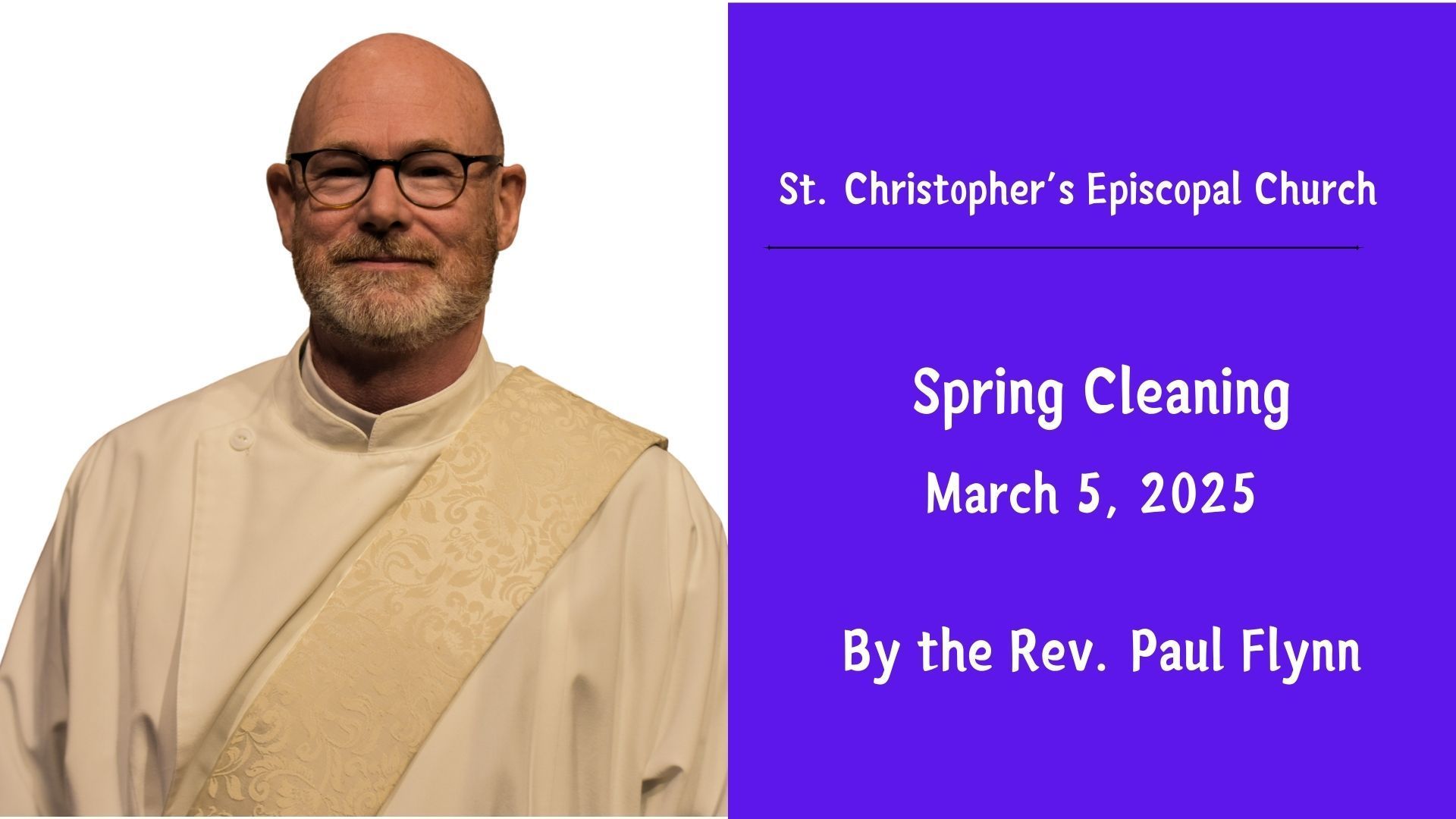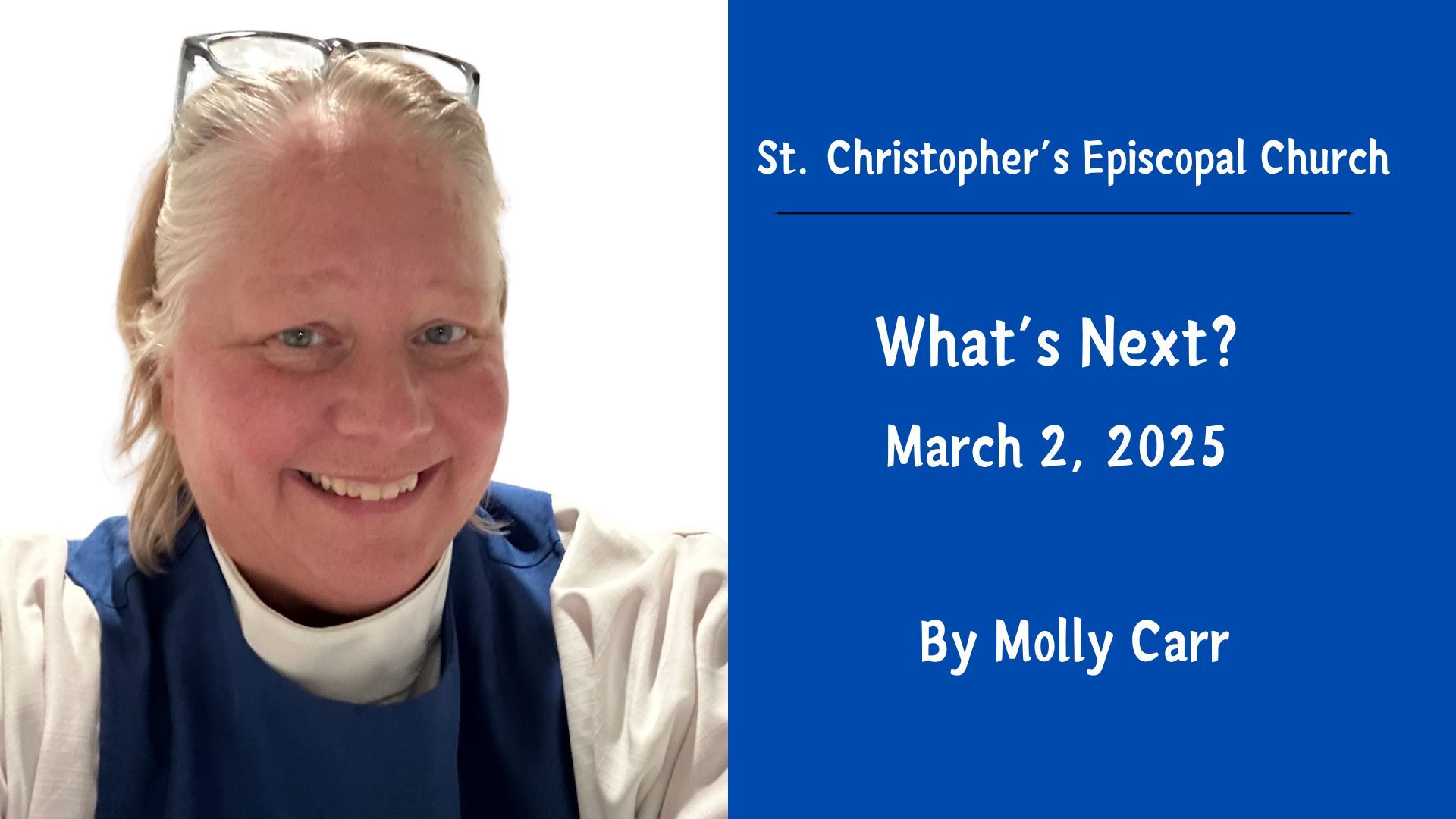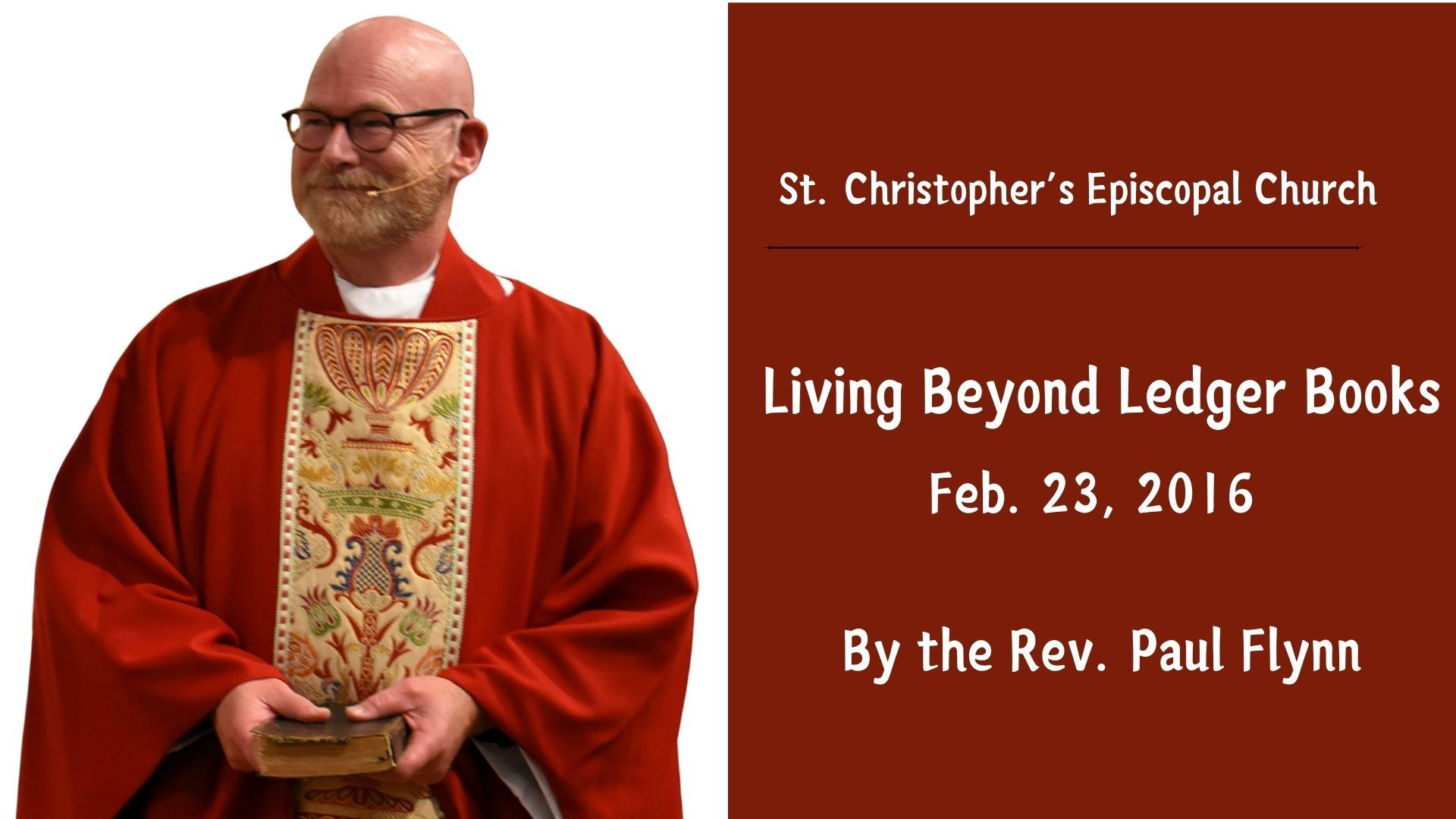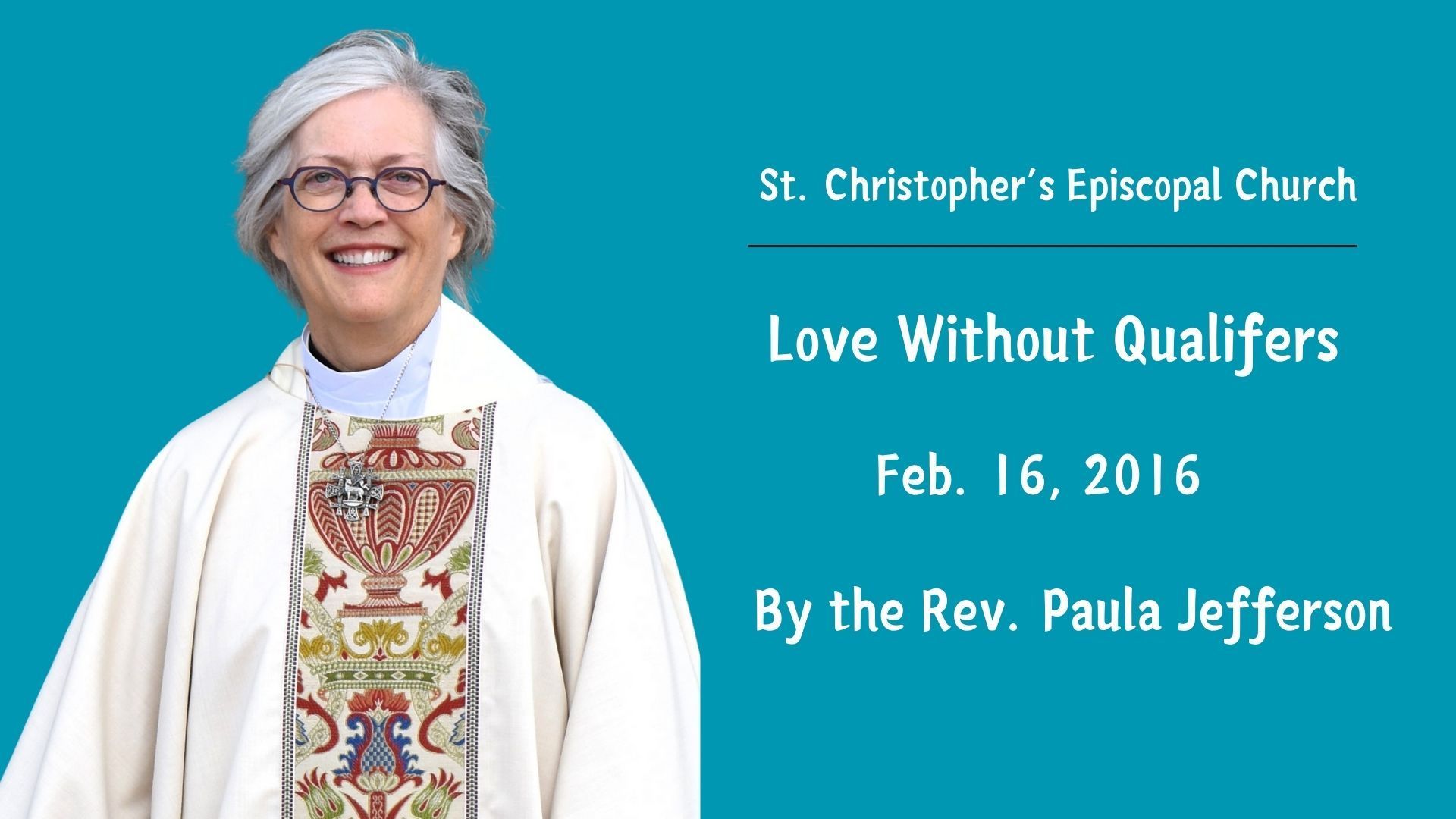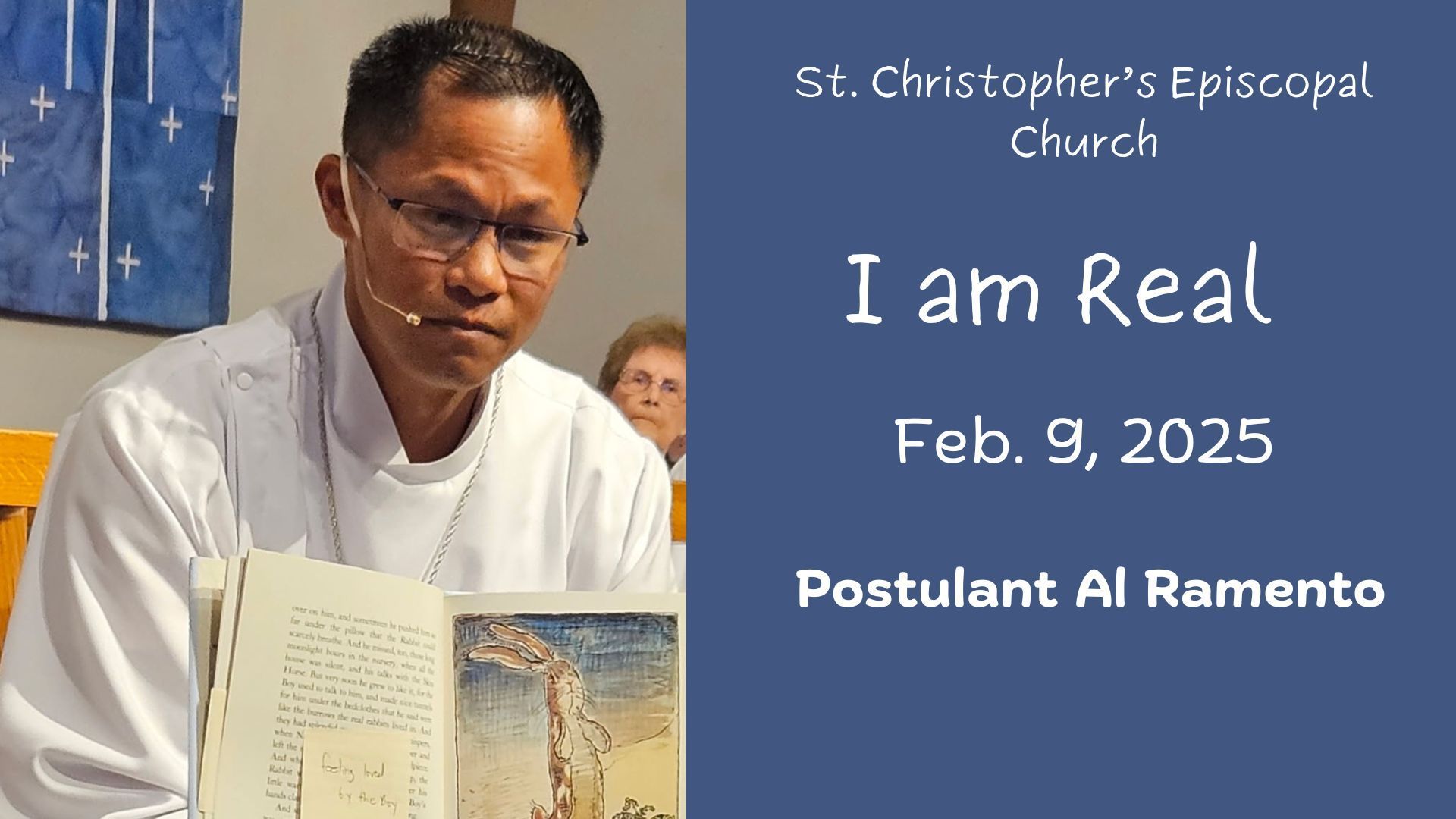Today is consecration Sunday for St. Christopher’s. It’s an important day in the life of Episcopal parishes, but it is especially important for us, as we look to the future and all that God is calling us to be in this moment.
The stakes are high.
Consecration means: “The action of making something sacred.”
It is to take something profane, something of our secular world, and set it apart for God’s purpose. In our tradition, we usually think about consecration in the Eucharist: We bring forth the bread and wine from our world, place them on the Table, and the priest invites the Holy Spirit to consecrate them to make them holy.
The past few weeks, I’ve been thinking a lot about what it means to make our stewardship gifts sacred. I began researching a woman who lived an extraordinary life.
She was born in 1920, the beginning of the roaring ‘20s. After high school, she entered the work force, logging years at Haltom’s, Continental Oil, the Pullman Sleeping Car Co. and General Dynamics. It’s quite a resume for a woman working prior to the Civil Rights Act and throughout the Great Depression, World War II, and many other landscape milestones in American history.
Her life changed dramatically in 1954 when her 6-year-old child was diagnosed with lupus. Doctors thought the child would live only six months. In her autobiography, she wrote, “Without any words being spoken, we drove to our church where [my husband and I] received the blessed sacrament and [our daughter received] unction”.
The child was confined to her bed for 2-1/2 years.
Then an unexpected break-through in the medical community: The child’s particular version of lupus might benefit from a new drug. Today we call it ‘prednisone.’ It was exactly the right drug: The child’s recovery began immediately.
In the Book of Acts, the author tells us about the conversion of Saul—blinded on the road to Damascus, a personal encounter with Christ, restoration of sight, and—as God does—a new name to go with a new relationship with God: Paul.
Now, in the first letter of Paul’s ministry, he’s telling us what this conversion has meant for him. He deliberately walked away from his former life of status, wealth, and privilege to be an apostle of Christ. Paul says, “So deeply do we care for you that we are determined to share with you not only the gospel of God but also our own selves….”
Paul is pouring out his life as a living witness of God.
At the conclusion of our clergy conference last week, Bishop Doyle offered some wisdom in his final address. It went something like this: “Instead of looking for where we can fix the Church, we need to empty ourselves so that the love of God can pour through us into the world.”
It is, I think, exactly what Paul said to the Thessalonians 2000 years ago.
As the child’s fever abated and she learned to walk again, Mom was overcome with a need to thank God for the return of her daughter. In her words, she became “obsessed with the idea [that an Episcopal mission was needed] in the Southwest part of Fort Worth.” She talked about it endlessly—to people in the grocery store—anybody who’d stand still long enough to hear her story.
On Sept. 15, 1957, 13 people gathered to sign a diocesan petition to start a new mission: St. Christopher’s. The first service was held one week later. In the background of the photo, Janis Weinbrenner, the child who recovered from lupus, stands by the Altar. Among the 20 people who attended that first worship service was Connie Weinbrenner, the woman who spearheaded St. Christopher’s, and Jeanneane Keene, our 2022 senior warden.
The congregation grew rapidly — outgrowing every temporary space it occupied. The first building St. Christopher’s constructed was known as the “Tin Building” and the rectory came soon after. Finally on July 2, 1961, St. Christopher’s worshipped in its new sanctuary. As an interesting timestamp for July 2, 1961, I was born two days before that worship service.
There is a connection between Connie and Paul. Both of them had extraordinary encounters with Christ. For Connie, the encounter happened through the healing of her child. For Paul, the encounter is his own conversion.
The deeper connection is how -- both of them -- respond to their encounter with Christ.
Connie and Paul consciously bring the totality of their lives to God’s Table. Their wealth, their leadership, their passion, their energy—all of it is given to God in Thanksgiving. And God consecrates — makes holy — their offering.
Their personal stewardship of self is still bearing fruit.
Paul poured out his life spreading the Gospel, living the Gospel, and nurturing his church plants with letter after letter. His Epistles are like a baton, handed from generation to generation in the Church. His fingerprints are all over our understanding of Christ…of what it means to follow the Way.
We read his words written 2,000 years ago today.
Connie’s child was restored to health and Connie became obsessed with a persistent calling. Struggling with her calling, she remembered being visited by an angel who told her how to move forward. God was inviting Connie to bring a new people, a new ecclesia, to life: St. Christopher’s Episcopal Church.
Her fingerprints are in this very room. None of us would be here without Connie: her encounter with Christ, her offering of self, her faithful walk of obedience to God’s call. God handed Connie a baton, and she passed it to every Saint who came before us.
We began stewardship season by asking the question “Why? Why does God invite us to give back to God?” I hope you gave it some thought. For me, it boils down to this: We worship a living God whose work in our world is ongoing. God created us to be partners in stewarding all that God created: air, water, woods, animals But there are a couple of ground rules: Love God. Love your neighbor.
God did not create us to be couch potatoes. We are all called to be living stewards.
Today, the baton of St. Chris is handed to us. We are St. Christopher’s. It’s our turn to grab the baton and follow God’s call -- in this moment -- to empty ourselves so that God’s love can pour through us, into the world.
St. Christopher's Episcopal Church
5709 Wedgwood Dr., Fort Worth, TX 76133
St. Christopher's is part of The Diocese of Texas, a diocese of The Episcopal Church.
© 2023 St. Christopher's Episcopal Church
SERVICE TIMES
CONTACT US
Mailing Address:
P.O. Box 34971
Fort Worth, TX 76162
817-926-8277
Email: office@stchrisfw.org



